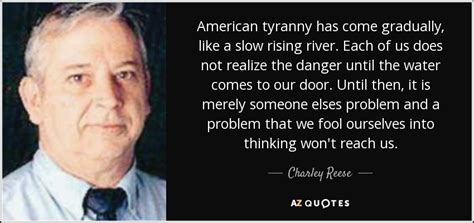A Quote by Mary Barnett Gilson
A young professor I watched in action at one of our large eastern colleges used to stand with his back to the class and mumble explanations of blackboard problems. He was "let out" at the end of two years because students refused to attend his classes. He was given an evasive reason for his dismissal and he left with justifiable bitterness toward the administration. If someone had told him the truth he could have avoided this denouement. Sometimes professors go on for years without any conception of remediable faults which irritate their listeners.
Quote Topics
Action
Administration
Any
Attend
Avoided
Back
Because
Bitterness
Blackboard
Class
Classes
Colleges
Conception
Could
Denouement
Dismissal
Eastern
End
Evasive
Explanations
Faults
Given
Go
Had
Him
His
Irritate
Large
Left
Listeners
Mumble
Our
Out
Problems
Professor
Professors
Reason
Refused
Someone
Sometimes
Stand
Students
Toward
Truth
Two
Two Years
Used
Watched
Which
Without
Years
Young
Related Quotes
Frank W. Woolworth once told me that the turning-point in his career did not come until he was thrown flat on his back by illness. He was sure that his business would go to pieces during his long, enforced absence. Instead, he discovered that he had in his employ men who could overcome difficulties when given power to exercise initiative. After that Woolworth left many problems and difficulties to be solved by subordinates and turned his attention to big things.
And still Meriadoc the hobbit stood there blinking through his tears, and no one spoke to him, indeed none seemed to heed him. He brushed away the tears, and stooped to pick up the green shield that Eowyn had given him, and he slung it at his back. Then he looked for his sword that he had let fall; for even as he struck his blow his arm was numbed, and now he could only use his left hand.
A professor was telling students about his colleagues class. Students in the other class had taken to tossing erasers at the clock. Each precise hit caused it to jump ahead one minute. Before class one morning they succeeded in advancing the clock by ten minutes. Since the new time indicated that the professor was beyond the accepted starting time, the class left. The professor never said a word about the incident. However, he presented the class with a killer of a final exam. As the students labored to finish in the allotted time, the professor amused himself by tossing erasers at the clock.
When you control a man's thinking you do not have to worry about his actions. You do not have to tell him not to stand here or go yonder. He will find his 'proper place' and will stay in it. You do not need to send him to the back door. He will go without being told. In fact, if there is no back door, he will cut one for his special benefit. His education makes it necessary.
And my father left me a legacy of his handwriting through letters and a notebook. In the last two years of his life, when he was sick, he filled a notebook with his thoughts about me… There are times when I want to trade all those years that I was too busy to sit with my dad and chat with him, and trade all those years for one hug. But too late. But that's when I take out his letters and I read them, and the paper that touched his hand is in mine, and I feel connected to him.
When Christ was about to leave the world, He made His will. His soul He committed to His father; His body He bequeathed to Joseph to be decently interred; His clothes fell to the soldiers; His mother He left to the care of John; but what should He leave to His poor disciples that had left all for Him? Silver and gold He had none; but He left them that which was infinitely better, His peace.
Mandela once told me that he lived on hatred when he went into prison because he was young and he was being abused and he was out there cracking those rocks all day and he said after about 11 years he realized that they'd already taken about everything they could take from him except his mind and his heart
The evil of the actual disparity in their ages (and Mr. Woodhouse had not married early) was much increased by his constitution and habits; for having been a valetudinarian all his life, without activity of mind or body, he was a much older man in ways than in years; and though everywhere beloved for the friendliness of his heart and his amiable temper, his talents could not have recommended him at any time.
Clearly the hardest thing for the working artist is to create his own conception and follow it, unafraid of the strictures it imposes, however rigid these may be... I see it as the clearest evidence of genius when an artist follows his conception, his idea, his principle, so unswervingly that he has this truth of his constantly in his control, never letting go of it even for the sake of his own enjoyment of his work.
Mr. Moony presents his compliments to Professor Snape, and begs him to keep his abnormally large nose out of other people's business. Mr. Prongs agrees with Mr. Moony, and would like to add that Professor Snape is an ugly git. Mr. Padfoot would like to register his astonishment that an idiot like that ever became a professor. Mr. Wormtail bids Professor Snape good day, and advises him to wash his hair, the slimeball.
I have also been attacked by my opponents as someone seeking to purge university faculties of leftist professors. This is false. The first provision of the Academic Bill of Rights is that no professor should be hired or fired because of his or her political views. I have never myself called for the firing of any professor for his or her political views, nor would I.

































